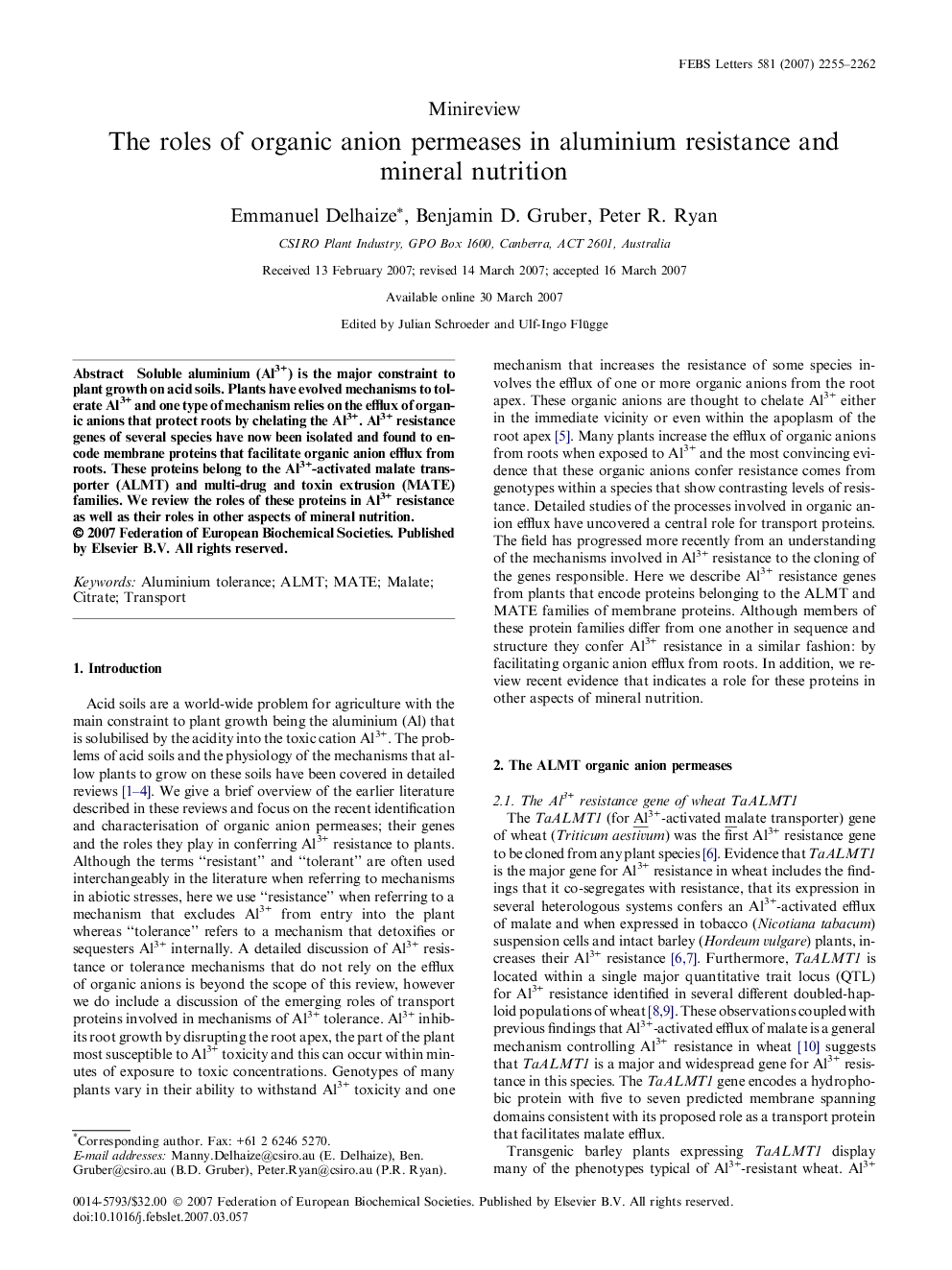| Article ID | Journal | Published Year | Pages | File Type |
|---|---|---|---|---|
| 2051092 | FEBS Letters | 2007 | 8 Pages |
Abstract
Soluble aluminium (Al3+) is the major constraint to plant growth on acid soils. Plants have evolved mechanisms to tolerate Al3+ and one type of mechanism relies on the efflux of organic anions that protect roots by chelating the Al3+. Al3+ resistance genes of several species have now been isolated and found to encode membrane proteins that facilitate organic anion efflux from roots. These proteins belong to the Al3+-activated malate transporter (ALMT) and multi-drug and toxin extrusion (MATE) families. We review the roles of these proteins in Al3+ resistance as well as their roles in other aspects of mineral nutrition.
Related Topics
Life Sciences
Agricultural and Biological Sciences
Plant Science
Authors
Emmanuel Delhaize, Benjamin D. Gruber, Peter R. Ryan,
